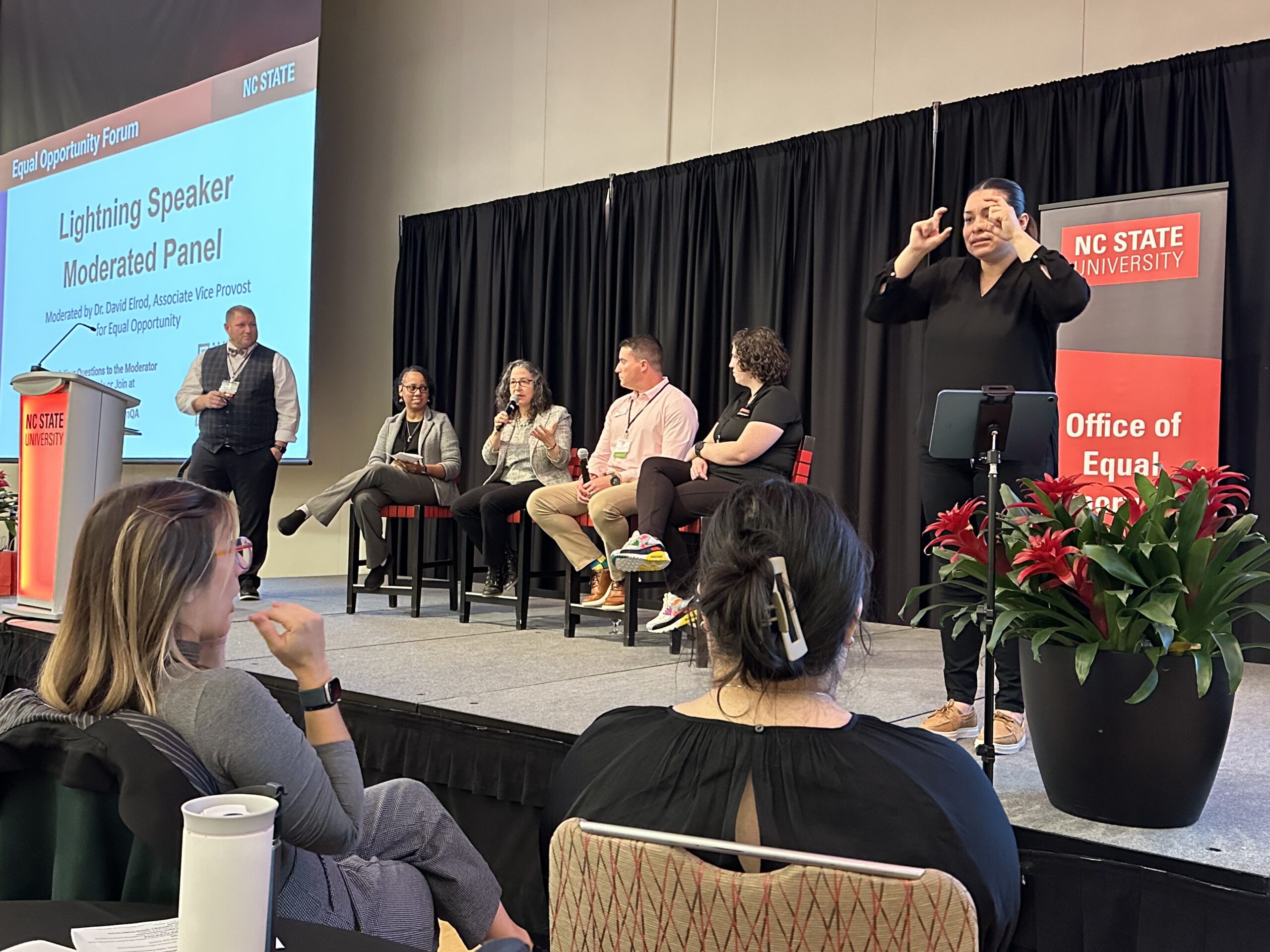Critical Systems Analysis: National Eating Disorders Week

In 2013, the National Eating Disorders Association, a U.S. nonprofit, conducted a survey of eating disorders and body image related-programs and services available on college and university campuses. The survey found that the onset of eating disorders is most common in individuals aged 18 to 21 and that its occurrence on college campuses is on the rise. The report also found that college programs can play key roles in detection, support and treatment.
How do we address eating disorders here at NC State? National Eating Disorders Awareness Week had some answers. During the week’s events, on Wednesday, February 27, 2019 the Women’s Center, Student Health Services and the Counseling Center partnered for a screening of “The Illusionists” and a panel discussion. The panel was comprised of varying perspectives, including a clinician specializing in eating disorders, undergraduate students of multiple identities, and a Ph.D. candidate, all of whom identified a number of illusions represented in the film as well as substantial gaps in visibility and representation. Most notably, the film itself addresses the themes of a Western ideal in the notion of global beauty, the roles capitalism and consumerism play and how this impacts the lives of different individuals.
The film creates a foundation for being able to talk about eating disorders in a way that acknowledges the systemic factors. Often, we see the conversation stigmatizing, infantilizing or blaming those who are affected. Eating disorders, along with body image, are far more complex than that. Panelists shared how identities and social factors such as race, age, sex, gender identity, gender expression, sexual orientation, socio-economic status, disability and cultural norms impact body ideals, particularly among college-aged students. The intersection of health, size, and weight was a hot topic as well.
Our Wolfpack student body has a phenomenal array of different bodies, which also means there is a phenomenal array of different lived experiences needing support in ways that work best for them. The Counseling Center was on hand to provide emotional support for those impacted by the film or who wanted to connect to resources or link to the dietician and nutrition support services on campus. These resources include support from the Eating Disorder Treatment Team, comprised of professionals from both the Counseling Center and Student Health Services. This multidisciplinary team provides support for the outpatient treatment of disordered eating behavior and/or body image concerns. In addition to medical, nutrition, individual therapy and referral services, the Counseling Center facilitates the Eating Disorder Recovery group.
How do we move forward? Suggestions for addressing body image in healthy ways included an audit of images consumed, analyzing messages from peers, introspection on our own thoughts and expanding our exposure to variety. This is the beginning. You are encouraged to continue the conversation online with the hashtags #NEDA, #NEDAwareness or by hosting your own viewing of the film. Students can watch free of charge by logging in with their student credentials. The Women’s Center, Student Health Services, the Counseling Center, Feed the Pack Food Pantry, Financial Services and the Disability Resource Office offer continuing resources and support.
Have ideas? Share them! Starting the conversation is where it begins.
Harper Bell is a junior studying social work, a member of The Movement Peer Educators and a panelist from the evening’s discussion who uses they/them/theirs pronouns.
- Categories:


